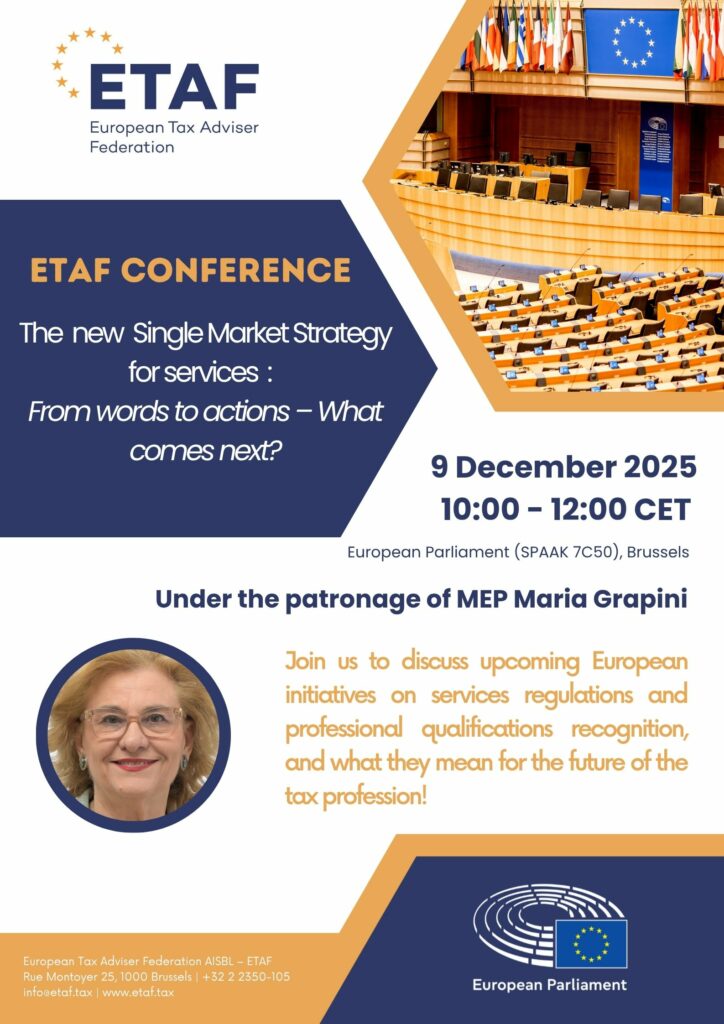Latest progress at OECD on the side-by-side regime under Pillar Two
Countries are reportedly nearing agreement on a “side-by-side” (SbS) regime under the OECD’s Pillar Two framework that would exempt US domestic companies from key tax provisions of the global minimum tax by aligning the US Global Intangible Low-Taxed Income (GILTI) rules with the OECD’s Global Anti-Base Erosion (GloBE) standards. According to recent media reports, under the emerging deal, the US would forgo first taxing rights on its multinationals’ foreign operations, allowing jurisdictions — particularly in the EU — to continue imposing a 15% minimum corporate tax on US companies operating in their territories. The proposal would ensure that GILTI taxes are not “pushed down” to subsidiaries in countries with domestic minimum top-up taxes. OECD negotiators are refining criteria to determine which countries’ domestic tax systems qualify for inclusion in the SbS framework, with the outlined features closely mirroring the US model. Discussions also extend to the treatment of joint ventures partly owned by US firms under the regime. A 31 December deadline has been set to reach an agreement. The OECD is also proposing to reassess in 2028/2029 if the SbS regime has maintained a level playing field globally.
CJEU dismisses Pillar Two Directive appeal
On 30 October 2025 in case C-146/24, the Court of Justice of the European Union (CJEU) dismissed Fugro NV’s appeal for lack of standing, upholding the General Court’s December 2023 ruling in case T-143/23. Fugro, a multinational geoscience and surveying company, had sought partial annulment of the Pillar Two Directive, arguing that it was directly and individually concerned by the measure. The Court reiterated that individuals may be directly and individually concerned only if they belong to a clearly limited class identified at the time the act was adopted. It found that the directive applies broadly to economic operators meeting objective criteria and does not target Fugro specifically. Fugro’s claim that it formed a limited class due to its participation in the Dutch tonnage tax regime was rejected, with the Court noting that benefiting from such a favourable scheme is not an acquired right exclusive to Fugro or a narrow group. Concluding that Fugro failed to demonstrate individual concern, the Court held the appeal was unfounded.
Call for written inputs on draft documents for the UN Tax Framework Convention
On 24 October 2025, the intergovernmental negotiating committee of the UN Tax Framework Convention released two draft documents: a co-lead’s draft framework convention template and a concept note on ideas for potential solutions on dispute prevention and resolution, open for written comments from Member States and stakeholders until 5 December 2025. The draft template covers issues such as fair allocation of taxing rights, taxation of high-net-worth individuals, mutual administrative assistance and measures to combat illicit financial flows and harmful tax practices, while leaving placeholders for topics to be developed in future negotiations. The second document is a concept note on the second early protocol on prevention and resolution of tax disputes. It outlines an optional approach establishing a universal framework for resolving tax disputes, focused exclusively on cross-border matters and recognising that not all countries will wish to use every mechanism included. This protocol is expected to be presented to the UN General Assembly at its 82nd session in 2027.
CEN approves the revised e-Invoicing standard EN 16931
The European Committee for Standardization (CEN) has officially approved the revised European Norm EN 16931 for electronic invoicing, aligning the standard with the EU’s ViDA initiative and the upcoming intra-EU B2B e-invoicing and Digital Reporting Requirements (DRR) taking effect in July 2030. The updated standard introduces a more comprehensive semantic data model for B2B e-invoicing and adds key fields such as IBAN, triangulation indicators, corrective invoice sequencing, and margin scheme support. Publication of the revised standard is expected shortly, with additional implementation guidance to follow.
FISC Subcommittee to host public hearing on the role of VAT and data bias in combating period poverty
On 4 November 2025, from 09:00 to 10:30, the FISC Subcommittee will host a public hearing on "the role of VAT and data bias in combating period poverty". Experts will be invited to discuss how VAT policy can serve as a pragmatic tool to address affordability barriers and promote fairer treatment of essential goods. In particular, the hearing will look into whether menstrual products should be treated like other essential goods in that regard as well as into further best practices, such as zero VAT and free access schemes. Moreover, the hearing will investigate the relation between data biases and the disproportionate effect of VAT on menstrual products. This hearing takes place in the context of the Gender Equality Week 2025. The draft programme can be consulted here.
Save-the-date: ETAF Professional law conference in cooperation with MEP Maria Grapini on 9 December 2025
The European Tax Adviser Federation (ETAF), in cooperation with MEP Maria Grapini, is pleased to invite you to join leading voices from the European Parliament, the European Commission, Member States, academia and the tax profession for an open and forward-looking exchange on what lies ahead for the Single Market for services and how the tax profession should prepare. On-site and online participation will be possible. Registration will open soon.

